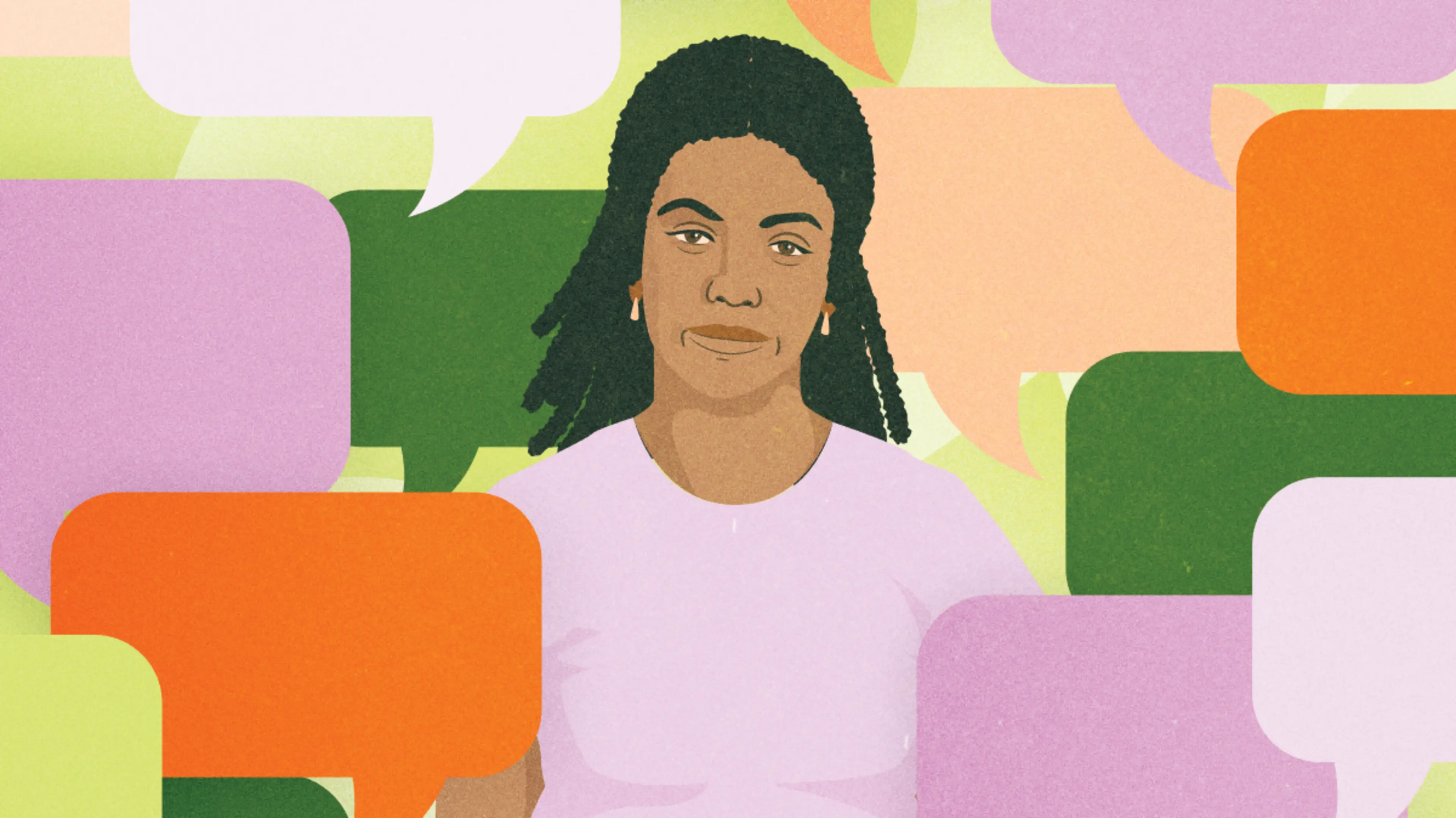For almost 10 months, you’ve been growing a tiny person who you’re so excited to meet. You’ve done all of the healthy things, taken the birth classes, and nested your entire house. Now, all you can do is…wait.
As someone who has white-knuckled a sense of control my whole life, giving into the uncertainty of when I would give birth was difficult. But what made it even more frustrating was having to deal with other people. There’s something about the last month of pregnancy that seems to make the folks around you lose their minds.
Toward the end of both of my pregnancies, I noticed a shift in the way people interacted with me. I knew they meant well when they peppered me with daily texts to see how I was feeling and to ask if I was in labor yet, but I found myself getting so annoyed. I was feeling the same as yesterday and the day before—so over being pregnant, anxious about physically giving birth, and so excited to meet my baby. The constant checking in only added to my anxiety. Plus, it wasn’t as if I didn’t already have a plan—a plan they knew about—to let all these people know the minute I went into labor.
As much as we might wish that pregnancy superpowers included the ability to control other people, they sadly don’t. But the good news is, we can control how we respond to them. Here’s how to deal with comments that spark rage as you’re nearing the final days of pregnancy.
The Unhinged Things People Say
If you ask anyone who’s ever been pregnant, they likely have a laundry list of inappropriate remarks people have said to them. I polled some of the parents on our team, and the worst offending comments seem to fall into a few big themes:
Comments about how you look
From “you must be due SOON!” (when you have three months left) to hearing “you look so small!” and “you're carrying so well” (when you’re actually dealing with an end-of-pregnancy complication) to “you don’t look pregnant” (when you’re midsize), our team has heard it all. And none of the comments were welcome. There’s a special timeout reserved for, “‘OMG IS IT TWINS?” at the end of a pregnancy. (True story, and for this co-worker, it thankfully was. But what if it wasn't…)
Unsolicited name advice and opinions
“Oh, I don't know about that name. It's a little old-fashioned, isn't it?” is just one of the unhelpful comments that you might hear when you share the name that you’ve thoughtfully picked out, that you know for sure is the one, with friends and family who feel the need to weigh in.
Unhelpful comments on your birth plan
How you plan to give birth isn’t anyone else’s opinion outside of you, your partner, and your care providers. Full stop.
Gender speculation
There’s something about being close to a person who is growing another human that makes some folks feel very entitled to information during pregnancy (not to mention access to the baby once they’re born). Those who have chosen not to find out—or not to reveal–their baby’s gender know this all too well.
As one coworker told me, “I opted for being surprised at birth (regarding gender) for my current pregnancy and the amount of comments I’ve gotten on what other people think the gender is, paired with very detailed comments on my body shape (in a very non-flattering way) and hips and belly has just become very awkward and uncomfortable.”
Inappropriate comments about growing your family
No matter the intent, comments about how many kids you’re having, when you’re choosing to have them, or anything else having to do with your personal decisions about growing your family can cause real hurt, anxiety, and lasting insecurity.
How to Address Rude or Annoying Comments
Confrontation is not my strong suit, at all. I’m a recovering people-pleaser—I never want to be the reason anyone feels bad, undervalued, or left out. But pregnancy and becoming a mom forced me to re-evaluate this personality trait. Here are a few things that worked for me when I needed to address people who were overstepping.
Be direct
The most effective way to address unwanted comments is to be direct with whoever is saying them. Try leading with a classic “I statement,” like, “I’m not open to discussing that with you” or “I’d rather not talk about that.” You can also get specific. If they’re bombarding you with labor-watch check-ins, let them know that you’ll be the one to reach out when it’s go-time and that their texts are making you feel anxious. (Also, if you don’t plan to tell family and friends when you’re in labor, you certainly don’t have to!)
Set boundaries
Boundaries are having a moment on social media these days, and that’s a good thing. Boundaries are self-care. I’m not perfect at them and I sometimes still feel uncomfortable setting (and upholding) them, but remember: people’s reactions to your boundaries have nothing to do with you. It’s important to be empathetic and establish boundaries with kindness, but it’s ultimately not your responsibility how other people react to them.
Prioritize your peace
Pregnancy and becoming a parent are huge life shifts. There are very few other things in life that cause such physical and emotional changes all at once. So if there is ever a time to put yourself and your mental health first, this is it.
Here are a few ways that helped me protect my peace in the weeks leading up to labor:
Fit as much self-care and as many things that bring you joy into your days as you can. Filling up your cup will make you better equipped to cope with things that upset you.
If you’re getting a ton of phone calls and texts, set your notifications to “Do Not Disturb.” This is something I did during my second pregnancy, and it was a big help.
Line up your support system. Modern parents are all too familiar with the missing village, but it doesn’t need to be that way. Try to organize the support you’ll need in advance, whether that’s asking friends and family for help or conducting a search for a therapist just in case you need one during the postpartum period.
Having been through two pregnancies, I am no stranger to receiving unsolicited advice and unwelcome comments about my body, birth preferences, and pretty much everything else. I think the most important thing to keep in mind is that what people say is a reflection of them, not you. If you’re on the receiving end of some of *those* comments during your last few weeks, try to take them with a grain of salt, practice sticking up for yourself, and give yourself a whole lot of grace.











